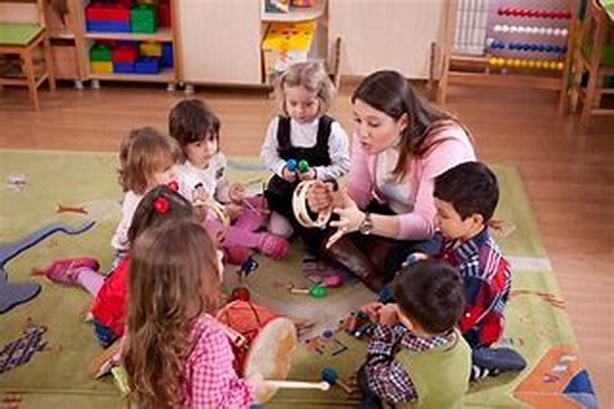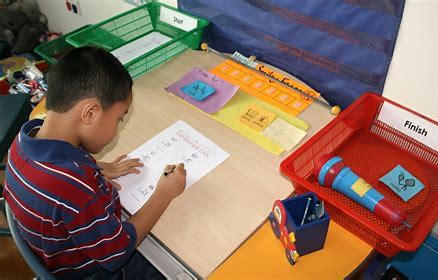What is the most concerning or destructive thing that is going on right now in your child’s world?
More about Programs/Interventions/Therapies for parents to consider –
Note: My presentation of various Programs/Interventions/Therapies is random, with no intention of my preference nor recommendation.
Carlon, S., Carter, M., et al. (2014) tell us that 75 parents were surveyed to determine the decision-making process considered when choosing the type of intervention for their child. The survey revealed that parents thought their child’s individual needs were the priority, followed by their ‘gut-feeling’ determined by having realistic goals for him or her. These became their guide, as opposed to a smooth sales-pitch, or someone else’s experience (because each child expresses autism differently).
< My Thoughts > “…a smooth sales-pitch…”
Remember that for many, autism is a ‘business’. Trust but verify.
The following is from Luker, S. (2024); UNIT 7-1, WHO MAY HELP? (Continued); UNIT 7 – 2 OTHER THERAPIES Section 2: RDI, SPD, ST, TEAACH
Excerpts from my Extended Review of Leeann Whiffin’s book. Amazon LINK on my website. (Find on MENU).
RDI Relationship Development Intervention® is a family-based, behavioral treatment designed to address autism’s core symptoms.
Whiffin, L. (2009) 76% I received an email from my Yahoo! Group regarding this new treatment called RDI. At first, I blew it off as being the new treatment choice of the month, but as I started researching it further, I was really impressed with how it addresses the core deficits of autism.
(Then I read the book Relationship Developmental Intervention (RDI) with Young Children by Steven Gutstein). I was floored at this new way of teaching our kids. It really makes sense.
There are additional activities you can do to reinforce it. It helps them learn nonverbal communication, social referencing, and to be more vigilant in their environment.
I want Clay to not only be able to function in real life, but also have relationships and friends. Isn’t that really what life is all about? We need each other to enhance our quality of life.
78% At our next team meeting, I pose a question – “What are Clay’s deficits?”
“It seems Clay still has a hard time with attention span, focusing, and impulsivity,” one member says.
Another adds, “He also doesn’t seem to contribute when in group activities unless specifically asked or singled out.
“I think RDI will help with all of these issues,” I say. “Now we know what we need to work on with him. I think RDI will fill in the holes we are seeing.”
82% Leeann continues, “The RDI activities dovetail our existing program by reinforcing what we are already teaching him, but also emphasize experience sharing in a relationship…teach him inhibitory control by stopping when I stop, starting when I start…”
Trisha walks through the front door smiling. She and Clay are back from a generalization session, in which they take what he has learned inside our house and generalize it to the community. “Clay was amazing today!” she says. “He was naturally motivated, seeking to please me constantly. I was amazed at the intensity with which Clay listened.”
Everyone is amazed at how his language and expressions have really blossomed over the last six months. Still, I need to know exactly how he is doing in terms of IQ, social skills, and language. I want him evaluated by a professional… someone who doesn’t know him.
< My Thoughts > “I want him evaluated…”
Seeking an ‘outside’ evaluation; in other words, a second opinion of Clay’s current development trajectory is very wise. Many times, programs may continue with the same methods, over and over; yet expecting newer and more positive results. Also, a child’s and family’s wants and needs may change.
Next, we will consider (TEAACH) Treatment and Education of Autistic and Related Communication Handicapped Children.
Edelson (2019) expresses that the TEACCH method is successful because it is a ‘therapeutic tool’ to help autistic individuals of all ages, understand their surroundings. This structured teaching method was developed by Professor Eric Schopler and his colleagues at the University of North Carolina at Chapel Hill.
All treatments would be expected to demonstrate excellent reliability. But further investigation, trained examiners, and fidelity of assessment conditions may be required.
< My Thoughts > “…excellent reliability.”
The caveat here to a treatment being considered to have ‘excellent reliability’, is that these programs have fidelity in presentation, qualified and certified personnel, as well as consistency in participant evaluation. All persons involved, child, parent, and personnel must desire and believe in the same goal; over time. And, just because it takes over your life and keeps your ‘wild child’ occupied for most of the day, doesn’t necessarily mean that it has been successful. Know also, that each program with the same title, may differ in their content and effectiveness.
References:
Carlon, S., Carter, M., et al. (2014). Decision-Making Regarding Early Intervention by Parents of Children with Autism Spectrum Disorder; Journal of Developmental Physical Disability; 27:286-305.
Edelson, S. (2019). Structured Teaching – TheTEACCH Method; Retrieved online from – www.midwayisd.org/cms/lib/
Luker, S. (2024); Know Autism, Know Your Child with < My Thoughts > by Sara Luker; Retrieved online from – www.sarasautismsite.com
Whiffin, L. (2009) A Child’s Journey Out of Autism: One Family’s Story of Living in Hope & Finding a Cure; eBook Edition
Note: DISCLAIMER – Autism ‘intervention’, as with the phrase ‘Early Detection / Early Intervention’, may simply mean to attempt an ‘action’, or attempt to ‘change a course’ or ‘trajectory’ of the person’s autism. Any expectation for a successful ‘change’ must have the cooperation of the participant, the parent, and/or the assigned therapist. Words such as, ‘intervention’, ‘treatment’, ‘therapy’, ‘service’, or ‘program’ imply ‘cure’, or ‘long-term’ positive effect. That is NOT my intention here, and all information is presented without intent or suggestion of status or effectiveness.
End of DAY EIGHT. Note: Excerpts from the books – (13% indicates location in the Kindle version of the eBook, instead of page numbers).
Sharing of my website and BLOG Comments welcomed. A spiecal hank-you to those of you who have sent comments... much appreciated!
Regards,
Sara Luker



 RSS Feed
RSS Feed